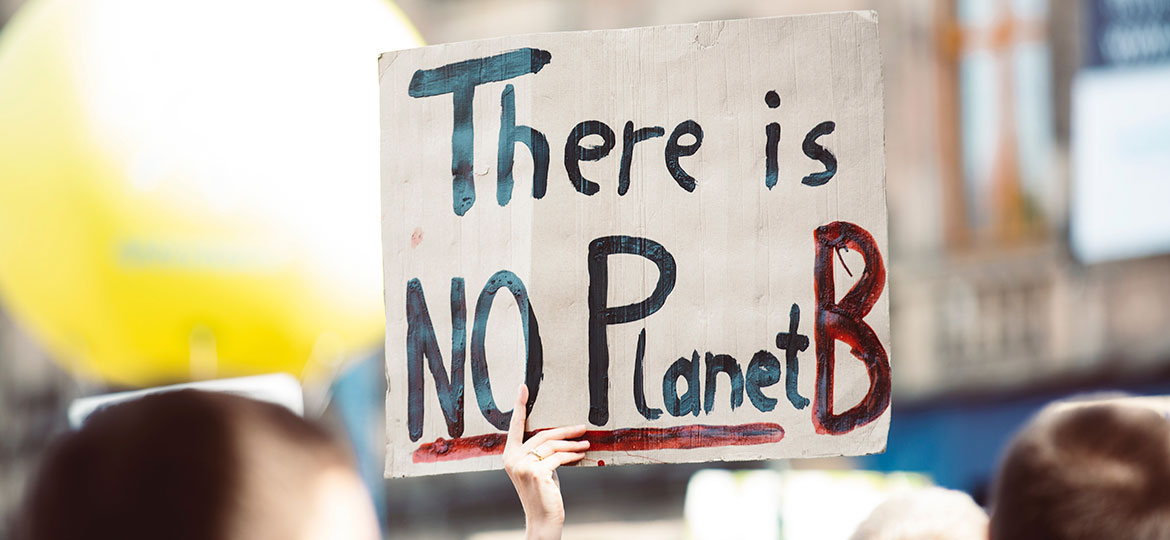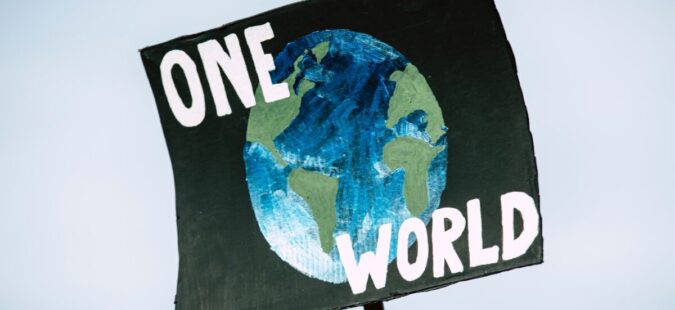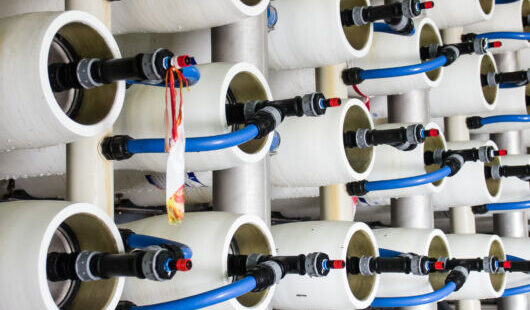
Is now the time to consolidate the fight against climate change?
Over the past few months, we have seen pollution rates drop dramatically, the skies are blue again, nature has come to life and even seismologists have noticed that the Earth is vibrating less. We’ve given our blue planet a good rest.
Since February, NASA satellites have detected drops of between 20% and 30% in nitrogen dioxide emissions in some regions of countries hard hit by the COVID-19, such as Italy, China and the United States.
However, these improvements have been at the expense of people’s health and shutdown of the economy, which makes us think that not enough is being done to alleviate the problem of climate change at the institutional, personal and business levels. There is no point in us having good environmental indices now if human beings are still unable to see the advantages of giving our planet a break, investing in green initiatives, supporting the circular economy and sustainable businesses, and the need to change our production and consumption habits.
According to the Scripps Institution of Oceanography at the University of San Diego in the USA, to achieve a significant decrease in the amounts of CO2 in the atmosphere, a sustained 10% reduction in the use of fossil fuels should be achieved globally for one year. And there is already data to support this change. A new report released by the International Renewable Energy Agency (Irena) published in early June, indicates that “Renewable power is increasingly cheaper than any new electricity capacity based on fossil fuels. On average, new solar photovoltaic (PV) and onshore wind power cost less than keeping many existing coal plants in operation, and auction results show this trend accelerating – reinforcing the case to phase-out coal entirely”.
Some cities such as Paris have already started environmental initiatives such as the construction of 650 kilometers of “corona bike paths” and Milan has announced an ambitious plan to reduce car use and give priority to pedestrians and cyclists. Likewise, in Spain, many roads have been closed to traffic to multiply the number of open spaces accessible to pedestrians.

After the COP-25 held in Madrid last December, 2020 was supposed to be a decisive year for climate change initiatives. However, the cyclone of the COVID-19 pandemic has caused the next summit to be delayed, along with the plans and initiatives associated with climate and climate change. Nevertheless, heightened citizen awareness of this subject means that there is no going back. Society, and young people especially, are demanding increased interest on the part of governments and companies, and they intend to become a new green generation that protects their planet.
One of the United Nations Sustainable Development Goals is to “ensure availability and sustainable management of water and sanitation for all”. This scarcity of water resources, combined with poor water quality and inadequate sanitation, have an impact on food safety, the means of subsistence and educational opportunities for poor families around the world. Some of the initiatives to achieve this goal include protecting and restoring the ecosystems associated with water, expanding international cooperation and support provided to developing countries for programs related to water and sanitation, and promoting water collection, desalination, efficient use of water resources, wastewater treatment, recycling and reuse technologies.
In May 2020, the UN’s health agency, with the support of millions of healthcare workers, published a manifesto with the steps to be followed for a green and healthy recovery in the wake of the pandemic:
1. Protect and preserve the source of human health: nature
2. Invest in essential services, from water and sanitation to clean energy in healthcare facilities
3. Ensure a quick healthy energy transition
4. Promote healthy, sustainable food systems
5. Build healthy, liveable cities
6. Stop using taxpayers money to fund pollution
As we can see, water is included in all of the agendas and initiatives related to environmental goals. But the fact is, we are depleting the entire planet’s fresh water reserves, contributing little or nothing to the search for new, unconventional alternatives of water that will allow us to preserve our natural sources. New, modern water infrastructure requires significant investment, but the short, medium and long term benefits are innumerable, not only for citizens and industries that have a real need for water, but also for the environment.
Water is an ally in the fight against climate change. Solutions such as desalination and reuse provide a safe alternative for producing quality water and also contribute to preserving drinking resources and maintaining reserves for future generations.

Desalination’s biggest critics have always called attention to its high energy consumption. But this problem has now been resolved through the use of reverse osmosis technology, which has drastically reduced energy consumption. If this technology is combined with renewable photovoltaic energy production and current market prices, we not only have a clear sustainable option that would significantly reduce water rates, but would also allow emissions-neutral production.
Reuse is beginning to constitute another important element in water planning management and may be used as a substitute for many uses that up until now required the use of drinking water. The technological barriers that formerly impeded the achievement of adequate levels of quality and healthiness have been overcome with the elimination of pathogens, color and odor and effective continuous monitoring has been introduced, so there is no longer any excuse for not employing treated wastewater for agricultural, urban or industrial uses.
So much so, that in recent months there have been very important advances in the European Union. Last May, the Commission approved the new Water Reuse Regulation. The new law for the first time defines minimum requirements at the European level for regenerated water to be used safely for agricultural purposes, protecting people and the environment.
This new regulation aims to ensure wider use of treated wastewater in order to preserve bodies of fresh water and groundwater. The decline in groundwater levels, in particular due to agricultural irrigation, but also due to industrial use and urban development, is one of the main threats to the European Union’s water resources.
Simona Bonafè (S&D, Italy), responsible for the parliamentary processing of the legislative text, said: “We could potentially reuse 6.6 billion cubic meters of water by 2025, compared to the current 1.1 billion cubic meters per year. That would require an investment of less than EUR 700 million and would enable us to reuse more than half of the current volume of water coming from EU wastewater treatment plants theoretically available for irrigation, avoiding more than five per cent of direct extraction from water bodies and groundwater”.
We have therefore reached the conclusion that water is key to continuing the fight against climate change and its dire consequences for the planet. Investing in innovative water projects, especially in water-scarce regions, is vital to secure water and food supplies, economic development and the natural environment.
But, although sometimes government budgets do not include items for improving or expanding renewable water infrastructure, they can benefit from the experience and liquidity of private companies that are willing to invest and help in this area. Institutions need to change their mindset, to allow the entry of private financing to enable them to cover the real water needs of their populations and industrial fabric.
Obsolescence and deficient management of water infrastructure results in tens of thousands of malfunctions and supply cutoffs per year, even in highly developed countries like the United States. Public-private collaboration would help mobilize the necessary resources, transferring the risk and technological know-how to companies with expertise on the subject.
We can therefore affirm that the means, technology and resources are available to continue progressing along the path of sustainability and protection of the environment. This temporary respite we have given the Earth cannot be in vain. Governments, businesses and citizens must continue to invest in our planet, in order to secure resources and life in general. It’s a critical issue. There is no planet B.
Now is the time to consolidate the fight against climate change and expand the efforts to achieve a more sustainable world. Specifically, the COVID-19 pandemic has reinforced the importance of water for both the health and hygiene of people, as well as for food and direct consumption. What more do we need to invest in technologies and projects that make it possible to bring water to all human beings?

